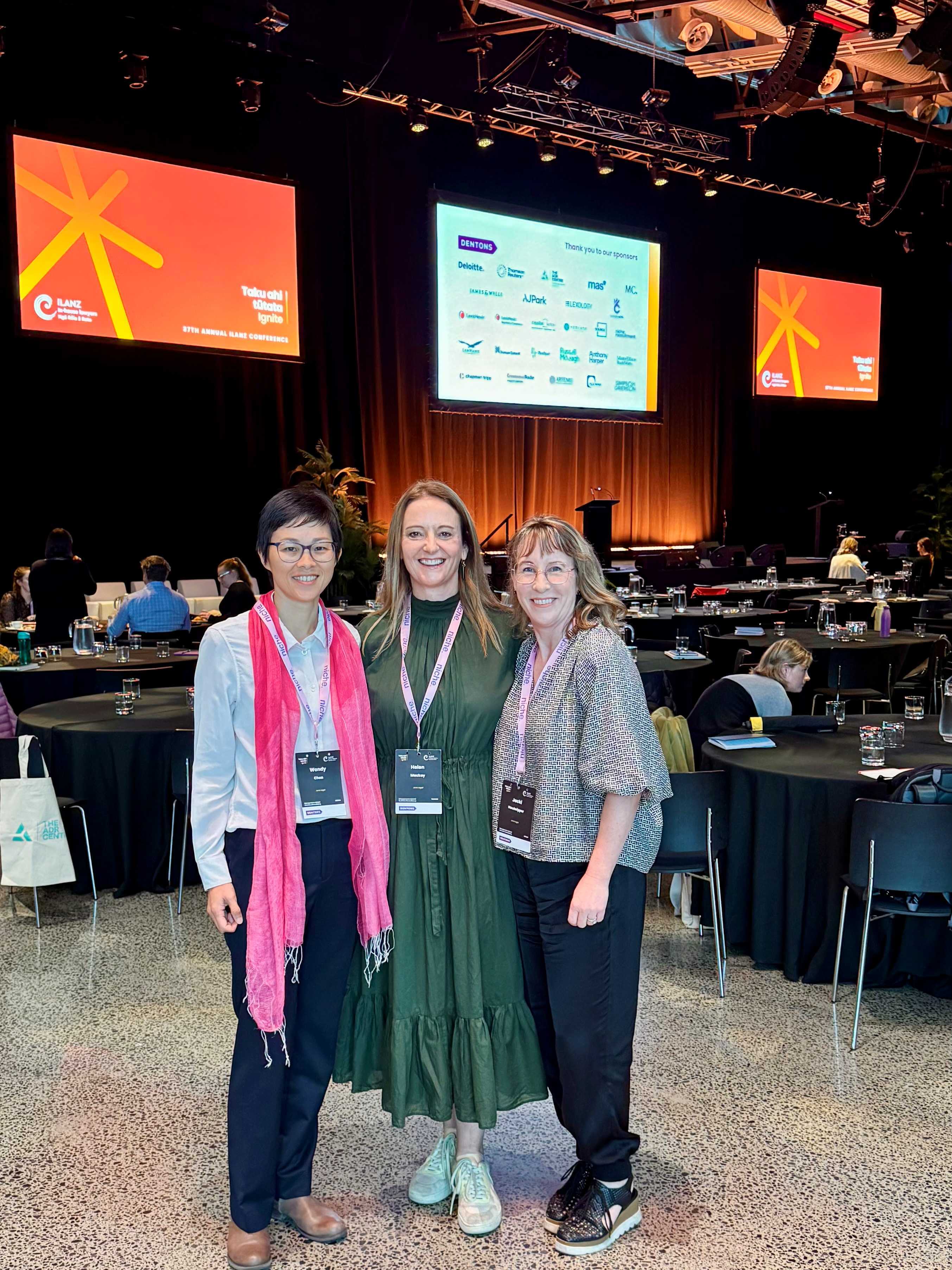
Ngā mihi nui to the ILANZ team for bringing together such a thoughtful, energising, and relevant programme for in-house lawyers in Tāmaki Makaurau on 7–9 May 2025. The conference theme, drawn from a whakataukī that resonated deeply with many of us, set the stage perfectly:
Taku ahi tūtata, taku mata kikoha. Taku ahi mamao, taku mata kiporo.
The blade that is close to the fire is sharp, the blade that is further away is blunt.
This Māori proverb captures the essence of what makes effective in-house counsel in today's complex landscape. Proximity to the heat of business decisions keeps our legal skills honed and relevant. Those who remain distant from the daily challenges and realities of the work context risk becoming dull and ineffective in their counsel.
Relational Lawyering: The Heart of In-house Practice
Opening speaker Solicitor General Una Jagose set the tone with her compelling concept of "Relational Lawyering", a reminder that our effectiveness isn't measured simply by our technical knowledge, but by our ability to understand context and consequence. This resonated strongly with me as I reflected on my own experiences navigating the complex human ecosystems we work within.
|
Jagose's insights into influence versus formal authority struck a particular chord. Having a seat at the table or nominal decision rights doesn't guarantee influence. Real impact comes from understanding how to get things done through people. The "what" and the "how" carry equal weight in our role. You don't have to know all the answers, but knowing who to call for help means that you can provide a solution.
This theme was powerfully reinforced during the closing panel discussion on "Beyond inhouse lawyering" with Erin Judge, Executive Director - Justice Sector Directorate; Herman Visagie, CEO - Telecommunication Dispute Resolution; and Judge Katie Elkin, Christchurch District Court. The speakers articulated what many of us have experienced but perhaps not named: while technical skills can be acquired, it's the human skills – leadership, communication, problem-solving, empathy, and decision-making – that truly enable a successful, non-linear career path. Rather than chasing titles, we were encouraged to select roles based on the experiences and people they offer. Their pragmatic advice acknowledged that career choices serve different purposes in different seasons of our professional lives, and importantly, very few decisions are truly irreversible.
For those of us working in-house, we have the privilege of proximity to decision-makers. We would be wise to learn through careful observation – watching how they navigate complexity, communicate difficult messages, and balance competing priorities provides invaluable learning opportunities that no textbook can offer.
Practical Lessons from the Fire
Some of the most valuable insights came from colleagues who have faced significant challenges and lived to tell the tale. While it's impossible to capture all the excellent knowledge sharing from the conference, several highlights stood out.
Louise Martin, Head of Legal and Company Secretary of Auckland Airport, shared candid reflections on crisis management that highlighted the critical importance of documentation during emergency response. While the immediate focus naturally falls on resolving the crisis, Martin emphasised the parallel need to capture data and record both the steps taken and the rationale behind them. This contemporaneous record-keeping becomes invaluable later when decisions are scrutinised. She also stressed the importance of obtaining reports from consultants in draft form and ensuring Legal approves the final version – a simple practice that can prevent significant headaches down the track.
Iris Reuvecamp and Greg Brogden from Health NZ Te Whatu Ora added valuable perspective from their experiences supporting frontline healthcare. As well as making connections, building trust, and knowing paths for escalation, in-house lawyers can help by ensuring issues for determination are focused and constrained. Supporting the organisation and staff in emotionally challenging times means directing their focus to what good might come out of a tough situation, helping families to understand what happened, and identifying what might change for the future.
The Human Element: Understanding Ourselves and Our Colleagues
Perhaps the most personally affecting sessions focused on recognising our shared humanity in the workplace. The discussion on burnout by Jane Davis, Director of The Flourishing Institute, hit close to home for many of us as we recognised ourselves in the description of those most vulnerable – highly conscientious professionals with strong work ethics and blurred boundaries. Who among us hasn't checked emails at night "just one more time" or worked through a weekend to prepare for Monday's board meeting?
The practical strategies shared for managing stress highlighted the importance of daily rituals and routines, the calming power of a long outbreath, and the critical ability to notice our thinking patterns. Choosing where to focus our attention, challenging the stories we tell ourselves, examining the facts, and considering alternative interpretations are powerful tools for maintaining wellbeing in high-pressure environments.
The conference also tackled topics that have traditionally remained unaddressed in professional settings – menopause (with Dr Linda Dear) and neurodiversity (featuring in-house lawyers Emmett Geoghegan and Ben Martell, facilitated by Jane Davis). Both sessions featured speakers who shared personal stories that transformed abstract concepts into lived experiences we could relate to and understand. The practical tips offered weren't complex or costly but focused on simple accommodations and understanding that can make an enormous difference to colleagues experiencing these realities.
A common thread emerged across these discussions: supporting colleagues through life's inevitable challenges isn't just compassionate – it makes good business sense. Life happens. Biology happens. Genuine understanding and creating a safe environment can enable talented professionals to continue contributing effectively through various life stages and circumstances.
Sharpening Our Blades
As I reflect on the conference and the whakataukī that framed it, I'm struck by how the "fire" has many flames in our professional context. It's not simply proximity to business decisions, but also to human experience, to challenges, to learning opportunities, and to one another.
Staying close to these fires by engaging fully rather than observing from a safe distance is what keeps our skills sharp and our counsel valuable. For in-house lawyers in New Zealand, our unique position within organisations offers daily opportunities to sharpen our blades, and in our rapidly evolving legal and business landscape, we need all the sharpness we can muster.
Notes and reflections compiled by Wendy Chen, with insights from the Juno Legal team at ILANZ 2025.
Ngā mihi nui to the ILANZ team for curating such a thoughtful and timely conference, and to Wendy and our Juno team for bringing these insights home to share.
These reflections are a reminder of why we do this mahi, and why we do it together.
At Juno, our team of experienced in-house lawyers bring curiosity, experience and clarity to their client engagements. Whether you need a sounding board, an extra pair of hands, or someone strategic to help you shape the path ahead, we’re ready when you are. Learn more about how we support in-house legal teams.